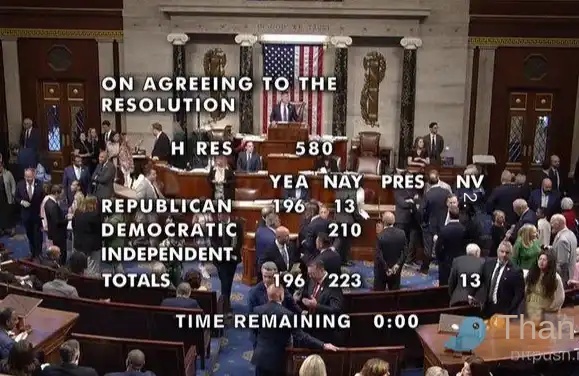Opside's Official Nanny Guide - PoS Edition
Source:

The PoS node has always been one of the focuses of the Opside community. Since the launch of the Opside Pre-alpha testnet on May 24th, the number of official nodes has maintained a good growth trend. As of now, there are more than 10,000 stable nodes running together to maintain the security and stability of the Opside network. It is worth mentioning that according to quotes from Amazon, Google Cloud, and others, the comprehensive operating cost of a single node machine is more than $1,500 per year. So far, the community has invested more than $15 million in costs for the Opside network. The official cold start nodes have also voluntarily exited half a month ago, and now all the more than 10,000 running nodes are operated independently by the community. The nodes are distributed in 41 countries and 301 cities worldwide, achieving complete decentralization.

Within this month, Opside has also made numerous updates and iterations on PoS nodes, including:
1. The software undergoes continuous iteration, upgrading from version V1 to V3, making it easier for users to use;
2. The official website has launched a batch pledge function.
3. Single node generates and runs multiple Validator functions online;
4. Consensus beacon browser iteration update.

The Opside Pre-alpha test network has been running smoothly for over a month, and as of the time of writing, it still maintains an APR of over 100%. In order to allow more community users to participate in PoS and jointly maintain the network security and stability of Opside, the Opside team has summarized common issues related to PoS node setup and operation within the past month for everyone's reference:
Basic Q&A
Introduction to Opside PoS Validator?
Opside Chain uses a PoS consensus based on the improvements of ETH 2.0.
Validator is the premise of maintaining the security and stability of the entire network. To participate as a Validator, users must deposit a certain amount of IDE into the deposit contract and run three independent software: execution client, consensus client, and Validator. Validators are responsible for checking whether new blocks propagated through the network are valid and occasionally creating and propagating new blocks themselves. If the behavior of Validators is dishonest, the deposited IDE will be punished and destroyed as collateral.
PoS makes it easier for individual community participants to participate in network security and promote decentralization. Validator nodes can run on regular laptops. Some proxy staking pools even allow users to stake without having enough IDE.
What are the benefits of participating in Opside PoS and becoming a Validator?
Contributed their own strength to the stable operation and future development of the Opside network!
Opside validators will receive block rewards, and the IDE block rewards they receive will be exchanged for points at a certain ratio. These points can be exchanged for future Opside mainnet tokens!
How to become a Validator?
To put it simply, there are several steps to becoming a Validator:
a. Have servers that meet the operating conditions of the nodes:
OS: 64-bit Linux, Mac OS X 10.14+, Windows 10+ 64-bit
CPU: 4+ cores @ 2.8+ GHz
Memory: 16GB+ RAM
Storage: SSD with at least 500GB free space(we recommend 2TB on mainnet)
Note: The above configuration is the official recommended configuration. Users can run PoS nodes on machines with lower performance. However, machines with too low performance will cause disconnection or slow synchronization, and will eventually be penalized by the network.
b. Stable network
c. Run three independent software on the server according to the tutorial: execution client, consensus client, and Validator.
d. Pledge 25,000 IDE in Opside frontend and wait for 16-24 hours for data synchronization.
e. Check the node running status: https://opside.network/validator/overview, keep the node always online.
Congratulations! You have officially become an authorized node of Opside!
Tutorial: https://docs.opside.network/validators-pos/run-a-validator
Video tutorial: https://www.youtube.com/watch?v=CvddMIWhnpY&ab_channel=Opside
How to obtain staking IDE?
Users can obtain the testnet IDE in the following three ways:
1. Apply to become an official Validator. The official has gradually relaxed the audit standards for PoS node applications and updates the PoS whitelist irregularly every week. Application link: https://forms.gle/cCVB3iAsXEVBW8sm6
Sideswap: https://sideswap.finance/
BlockNG: https://opside.zkevm.testnet.blockng.money/
There will be no impact, the whitelist address only allows community users to claim the testnet IDE on Opside Discord.
Advanced Q&A
Opside updated the instructions for running multiple Validators on a single node in version V3. Existing users can upgrade from the previous V2 version.
Please refer to: https://docs.opside.network/validators-pos/validators-management/create-more-validators-with-existing-mnemonic
How to batch stake?

How to apply for more IDE for staking?
For Validators who have successfully run PoS nodes, we welcome you to send an email to contact@opsi.de to apply for more IDEs to stake and run more nodes, and to describe the current node operation and your own node operation capabilities.
More PoS FAQ
https://docs.opside.network/validators-pos/validator-faq
Some PoS tutorials organized by the community, for reference only
Chinese:
中文:https://coinowo.com/archives/5825 English:
Chinese: https://coinowo.com/archives/5825
Indonesia: https://github.com/sipalingtestnet/opside/blob/main/s.mdx
Turkish: https://github.com/Core-Node-Team/Testnet-TR/tree/main/Opside
Russian: https://nodeservice.nodersteam.com/title/testnets/opside/ustanovka-nody
NOTE: The above is only a PoS tutorial provided by the community and does not represent any official opinions. Please be cautious when following the purchasing steps mentioned in the tutorial.
Welcome to join the official BlockBeats community:
Telegram Subscription Group: https://t.me/theblockbeats
Telegram Discussion Group: https://t.me/BlockBeats_App
Official Twitter Account: https://twitter.com/BlockBeatsAsia
 Forum
Forum OPRR
OPRR Finance
Finance
 Specials
Specials
 On-chain Eco
On-chain Eco
 Entry
Entry
 Podcasts
Podcasts
 Activities
Activities








